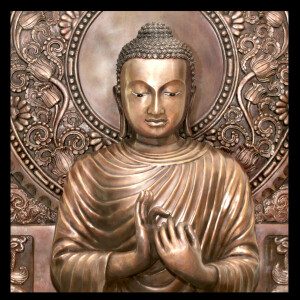
The Fruits of Recluseship (Life as monk/nun) - Samaññaphala Sutta Recitation | Ajahn Moneyyo | Buddhist Pali Chanting
 2021-09-15
2021-09-15
Download
Right click and do "save link as"
A Chanting of the Samaññaphala Sutta – “The Fruits of recluseship” (Dīgha Nikāya Nr. 2).King Ajātasattu visits the Buddha and asks him a seemingly innocent question:All ordinary professions like cooks, barbers, accountants etc. enjoy some visible results and gains from their profession – but what about contemplatives (monks and nuns)? Is it possible to point out any results that someone may gain from ordaining as monk or nun?The King’s question results in an awe-inspiring discourse, in which he explains the gradual training of a monk, from being inspired to ordain to gradually develop the heart and as result realizing higher and higher spiritual attainments up to the ultimate.An English translation is available here:https://suttacentral.net/dn2/en/bodhiThe original Pāli text is available here, if you want to read or chant along (Paragraphs 189. to 194. and 212. to 250.):https://www.digitalpalireader.online/_dprhtml/index.html?loc=d.0.0.0.1.x.x.mA short overview of the Chanting:0:00 min – The King’s Question: “Is it possible, venerable sir, to point out any other fruit of recluseship visible here and now, more excellent and sublime…?”0:37 min – A perfectly awakened Buddha arises in the world, someone hears his teaching and reflects if he should ordain and then leaves behind his wealth and relatives to go forth into homelessness.02:50 min – After ordaining he develops wholesome bodily and verbal action, purifies his livelihood and his virtue.06:03 min – Just like a King who defeated all his enemies doesn’t see any danger from anywhere, so too the monk who is endowed with this conduct does not see danger anywhere with regard to his restraint in virtue and experiences the happiness of blamelessness.06:48 min – The monk guards his sense faculties. When he sees a form with the eyes he doesn’t grasp it’s signs and features and experiences unsullied happiness because of that.09:24 min – The monk develops mindfulness and clear comprehension in all body postures.10:10 min - The monk develops contentment with his requisites. Just like a bird flies only with his wings wherever he goes, so too the monk takes only his robe and bowl with him.10:52 min – Endowed with these qualities the monk resorts to a secluded place in the wilderness to abandon the five hindrances.When the monk sees that these five hindrances are unabandoned within himself, he regards that as a debt, as a sickness, as confinement in prison, as slavery, as a desert road.But when he sees that these five hindrances have been abandoned within himself, he regards that as freedom from debt, as good health, as release from prison, as freedom from slavery, as a place of safety.When he sees that these five hindrances have been abandoned within himself, gladness arises. When he is gladdened, rapture arises. When his mind is filled with rapture, his body becomes tranquil; tranquil in body, he experiences happiness; being happy, his mind becomes concentrated.16:50 min – The first jhāna. The monk pervades his body with rapture and happiness born of seclusion.18:18 min – The second jhāna. The monk pervades his body with rapture and happiness born of concentration, just as if a lake without inflows from outside would be completely pervaded and suffused with water by a spring welling up from the bottom of the lake.20:15 min – The third jhāna. The monk pervades his body with a more subtle happiness free from rapture, just like Lotus-plants growing in a lake and don’t rise above the water would be completely suffused and pervaded by the water in the lake.22:06 min – The forth jhāna. The monk pervades his body with the completely purified and bright mind, just like a person would be covered completely by a white cloth.The heart which has been purified, free from defilements, malleable and impertuable can be directed to various kinds of higher knowledges:23:25 min – Gaining insight knowledge by seeing the material elements of the body and consciousness as separate.25:55 min – By his powerful,
view more
More Episodes
012345678910111213141516171819
Create your
podcast in
minutes
- Full-featured podcast site
- Unlimited storage and bandwidth
- Comprehensive podcast stats
- Distribute to Apple Podcasts, Spotify, and more
- Make money with your podcast
It is Free
- Privacy Policy
- Cookie Policy
- Terms of Use
- Consent Preferences
- Copyright © 2015-2024 Podbean.com






